10 Must-Have Documents for Real Estate Agencies to Secure in 2025

Interested in improving your closing ratio?
You need astute legal document management to complete sales in real estate.
Otherwise, property transactions can easily fall through because of poor documentation, leading to scorned clients and lost time and earnings.
A study by HomeSellingExpert discovered that 31% of house sales don’t work out. Notably, poor documentation emerged as one of the key failure factors.
If you’d like to complete more successful property sales, you need to learn about important documents for real estate agents. These include records like deeds, disclosure forms and more which can help get deals over the line.
Having the right records is also crucial to performing accurate property valuations, enabling you to negotiate an excellent deal for your client and fasttrack a purchase.
If you’re a freelance real estate agent keen on improving your workflow, check out this article I wrote about important documents for freelancers to have.
In this article, we’ll discuss must-have documents for real estate agencies to secure in 2024 in order to complete more successful deals and increase business revenue.
Let’s get started.
1. Buyer agency agreement
So what is a buyer agency agreement?
A buyer agency agreement is a legal contract between your real estate agency, and the property buyer. It legally acknowledges that you represent the buyer in the purchase, and also defines the services you’ve agreed to provide.
With this agreement defining clear roles and responsibilities for either party, it alleviates misunderstandings that can cause buyers to put off their search.
A survey by BrightMLS revealed that 73.1% of home owners backed out of a property purchase in 2023. While several market factors were to blame, we cannot overlook the role that unclear expectations of real estate agents played in this.
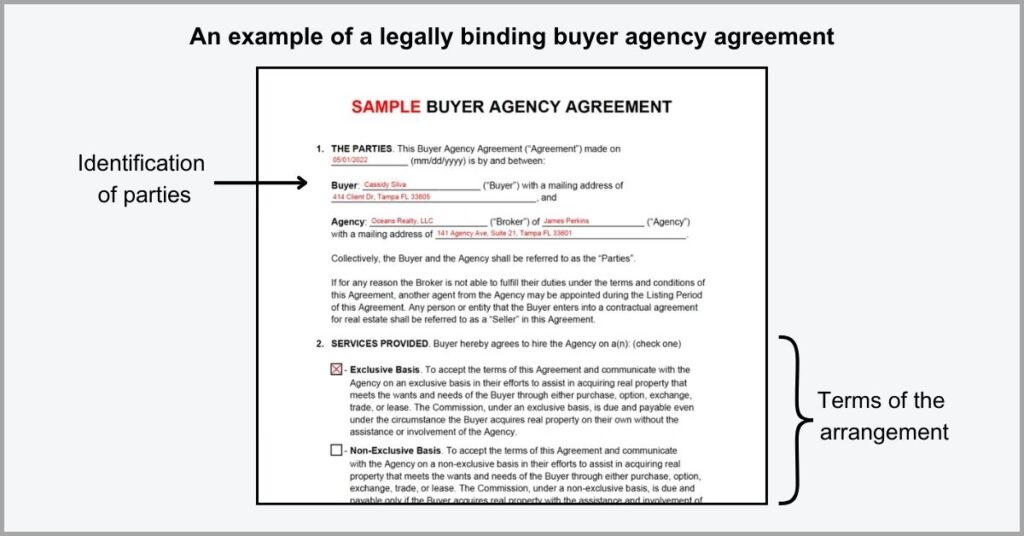
So a buyer agency agreement should contain a few important details.
This includes the agent’s license number and contact information, as well as an elaborate description of the type of services offered, the target property and fees.
With this document key to defining and maintaining healthy relationships with clients, it’s important to digitize it for easy reference and to improve searchability. I recommend using a proven document management software for this purpose.
Click here to start your free FileCenter trial to digitize your document workflow.
With our software, you can digitize important documents for real estate agents such as the buyer agency agreement, creating vital backups while making them easy to find.
2. Property disclosure form
Property disclosure forms provide crucial insights.
They record any known issues or defects with the target property, and are one of the most important documents real estate agents should obtain.
The lack of a great property disclosure form can lead to clients being blindsided and making uninformed decisions, which reflects poorly on your agency.
Unfortunately, 94% of sellers don’t disclose property defects, according to a survey by Clinch Home Services. Further analysis showed that 88% of the problem areas involve electrical issues, with plumbing, leaks and water damage also often hidden.
With the right real estate documents, it becomes easier to identify these issues or pursue legal remedies in case of deception.
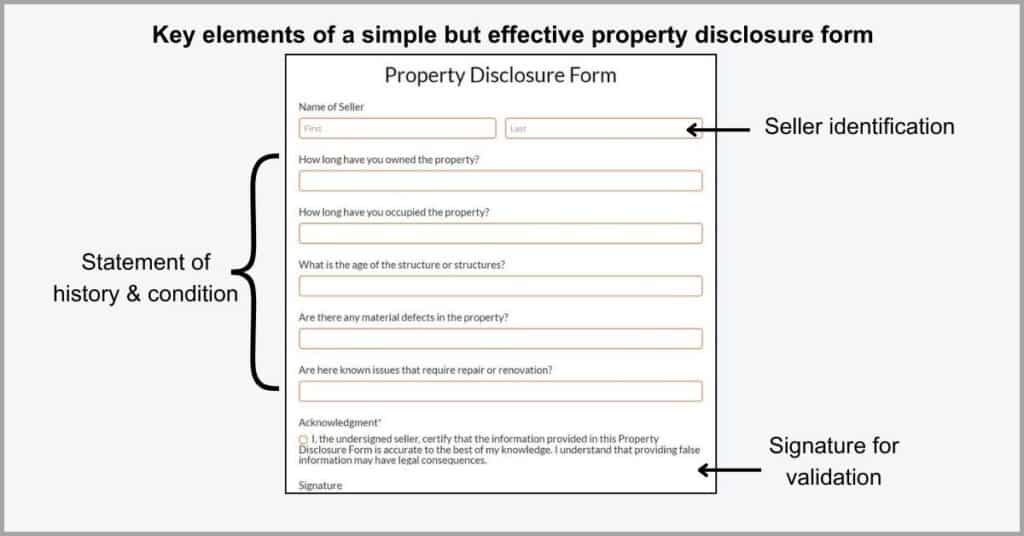
The property disclosure form is especially crucial if the buyer decides to waive a home inspection. It can provide a reference against which to solve a dispute in case your client discovers an undisclosed defect afterward.
In some states, a property or seller disclosure form is necessary, so creating one can help you improve regulatory compliance for your agency. Other states however abide by the principle of “buyer beware” so this document may not be a mandatory requirement.
Either way, a property disclosure form assesses the history & condition of the home, and it’s a vital record that can help secure a property with excellent resale value.
3. Property survey report
Why is a property survey necessary to carry out?
This is an important process typically performed by a professional land surveyor. The primary objective is to establish the property’s start and end points, among other features of the land defined in the property description.
A property survey report is essential for ensuring that the seller provides an accurate description of the property to avoid boundary disputes.
Despite its importance, it came to light that 37% of home owners didn’t carry out a survey when purchasing their properties, according to a study by Churchill. It’s a decision that many of them came to rue later on after disputes arose.
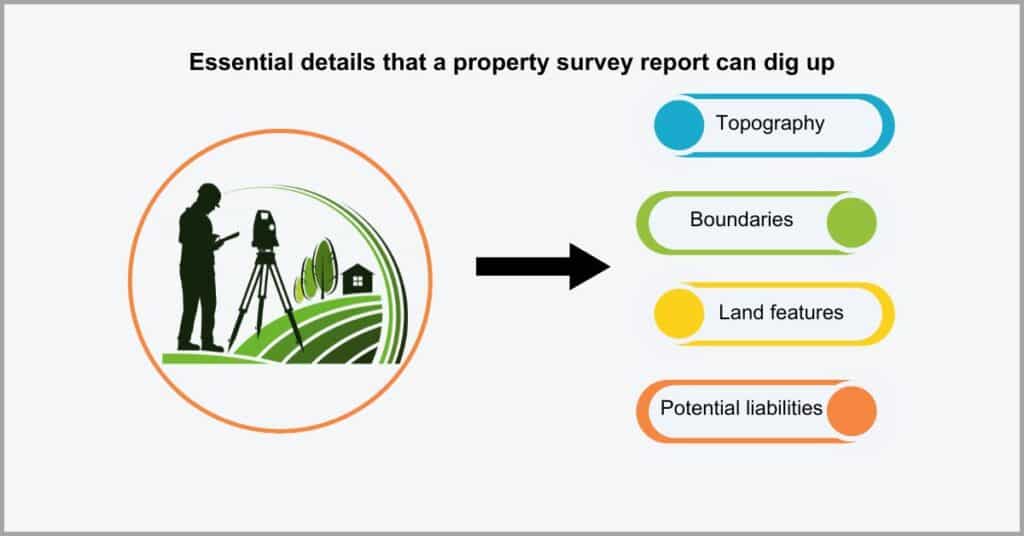
A great survey property report should outline the land features, topography, and boundaries of the property and the land it sits on.
More importantly, it should identify and disclose any potential concerns and liabilities.
It’s also important that the report contains detailed methodologies, verifying that the findings are credible. Overall, these are essential construction documents as well if you’re looking for a commercial property and want to sidestep deal-breaking issues.
With that being said, I must also point out that you may need to carry out different types of surveys depending on the purpose of the property. Some of the common types of land surveys include construction, boundary, building and topographic surveys.
4. Inspection report
Property defects can sometimes fly under the radar.
While there may not be any malice from the seller, some issues around structural integrity and plumbing problems can go unnoticed until after the purchase.
In order to avoid unforeseen and costly structural or mechanical defects, an inspection report becomes necessary for getting ahead of these problems.
A survey by Porch indicated that almost 9 in 10 homebuyers carried out an inspection when purchasing their properties. It’s consequently safe to say that most property buyers recognize its necessity.
So a property inspection report is one of the most important documents for real estate agents, also because it offers peace of mind to your clients.
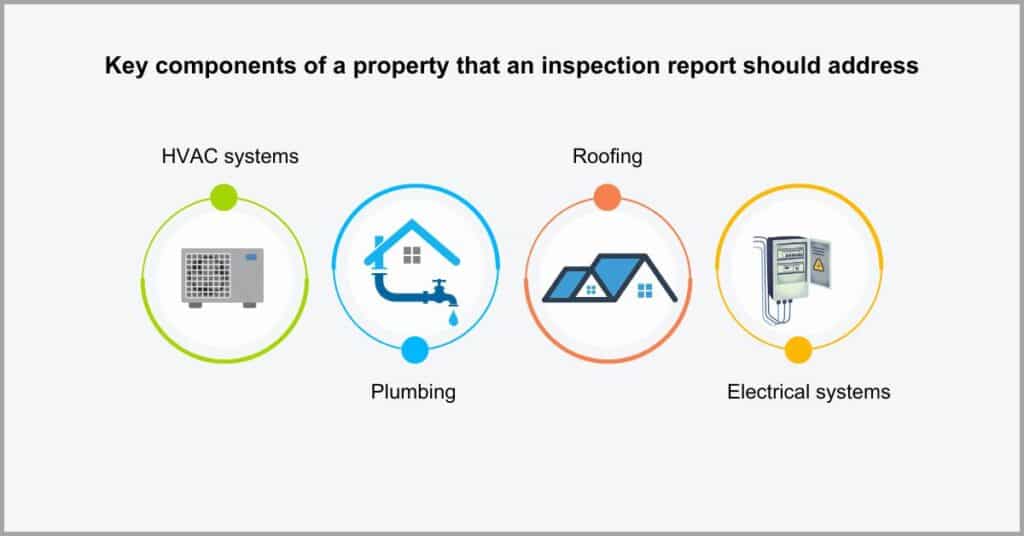
So what should a property inspection report contain?
Well, it should basically ascertain the conditions of the major components of the property, such as plumbing, roofing, HVAC and electrical systems, so that you can have an accurate estimate of potential repairs and their costs.
When you’re dealing with a large network of properties, each generating individual inspection reports, it’s challenging to organize these files. This is why I recommend using the best small business document management tools to boost efficiency.
Generally, an inspection report is a vital piece of documentation, largely because it can help you identify structural issues that may not be evident during the initial walkthrough.
5. Tax records
Was the previous owner keeping up with the taxes?
This is another key concern to address as a real estate agent to ensure that the home has a clean tax history record and wont cause problems for your client.
Otherwise, your client may face delinquent property taxes in case you move on and close a sale without carrying out due diligence on the property’s tax status.
The average property tax delinquency rate is 15.6% in some states like Mississippi, going by a recent CoreLogic study. While the numbers are low, the possibility of past-due property taxes and the threats is a factor that you can’t sweep under the rug.
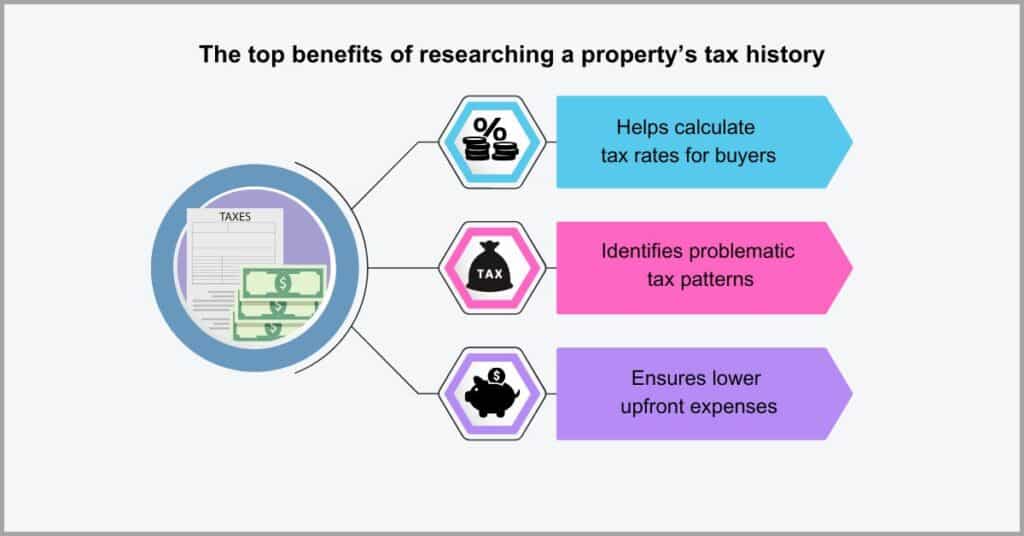
Considering that outstanding tax payments can add $10,000 or more, it’s understandable why tax records are must-have documents for real estate agents.
Fortunately, you can look up tax histories easily on government websites, and you’ll want to download and keep files organized and secure in a centralized repository. If the property will be used commercially, this can help identify tax relief opportunities.
Click here to start your free FileCenter trial to centralize real estate documents.
Our platform lets you create a central repository in your computer system or even in the cloud, making it very easy to access tax records for properties your agency is selling.
6. Title insurance policy
Imagine you’ve completed a property sale.
The client is ecstatic about their new home, but a few days down the line, a spouse of the seller crops up. They claim the property is theirs, and that they had no intention to sell, and even term the transaction as fraudulent.
With a title insurance policy, you can protect your client from ownership disputes, outstanding taxes and even cases of paperwork forgery by the seller.
In 2023, there were 4,904 property incidents related to fraud, destruction and theft, according to a recent study by the US Sentencing Commission. While this represents a significant dip from previous years, it’s a risk that remains significant nonetheless.
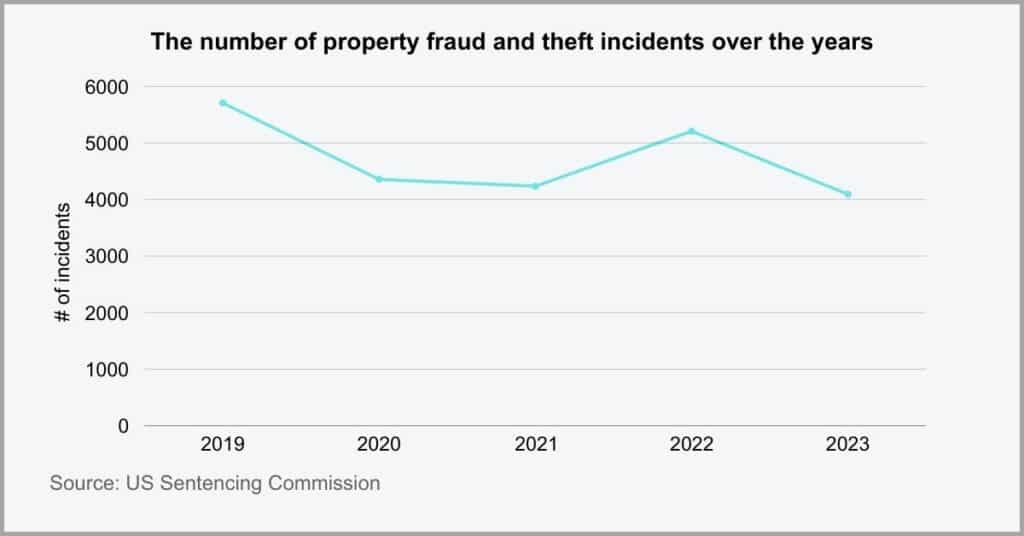
But how does a title insurance policy protect against fraud?
Well, these policies are typically provided by title companies, who are in charge of carrying out title due diligence and handling ownership disputes if they arise.
So a title insurance policy is one of the most important documents for real estate agents, because they maximize business productivity and minimize risk too.
However, there are two types of title policies, namely a loan policy that’s viable until a loan is paid off and an owner’s policy that’s good for the entire duration of the ownership.
It’s crucial to help your client choose the right one depending on their needs.
7. Property deed
Does the property have a deed?
This is one of the most basic yet still extremely important concerns to pursue as a real estate agency, because it can also make or break a property sale as well.
With this document enabling the transfer of ownership, your client may not be able to legally claim possession of the property in the absence of a valid deed.
This is one of the reasons why 9 in 10 buyers said they’re likely to work with a real estate agent, according to a survey by Remax News. They view you as an essential guide to provide market experience and assistance with obtaining records like deeds.

A property deed is one of the most important documents for real estate agents to secure because it also provides legal protection. Furthermore, it outlines the conditions for the sale, enabling more successful property ownership.
These records need to be signed and notarized to hold up in court, which is why I recommend using the best NetDocuments alternatives for electronic signing.
Although the task of drafting the property deed falls on the shoulders of the property buyer’s attorney, it’s necessary to keep a copy as the real estate agent. It can provide proof of ownership, especially if you’re looking to sell on behalf of the client.
8. Homeowners association documents
A property may also be subject to community rules.
These are known as the home’s association (HOA) or property owner’s association (POA) policies, and they define rules governing properties in a particular area.
While the laws of the land supersede HOA regulations, violating them can lead to significant consequences such as suspended privileges and hefty fines.
Unfortunately, 35% of new homeowners said that they’re spending more on HOA fines than on their monthly mortgages, going by a LendingTree study. This alarming situation is partly fueled by a poor understanding of community bylaws.
HOA documents can rectify this, giving new renters or buyers information necessary to streamline compliance.
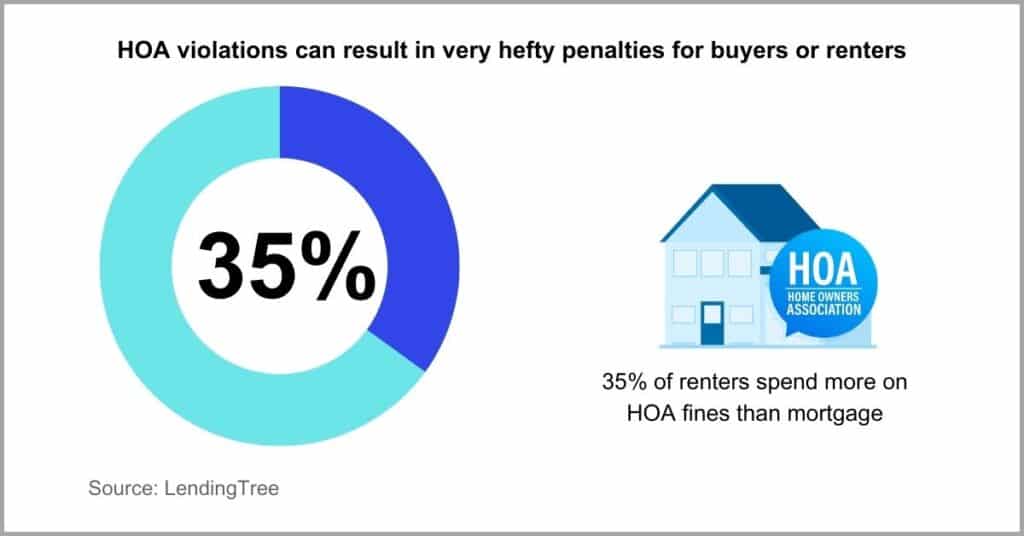
It’s for this reason that homeowners association records rank among crucial must-have documents for real estate agents. In fact, they can influence a client’s decision on whether to go with one property or another, which underlines the key role they play.
If you’re managing several rental properties with varying HOA requirements, I recommend using cloud document management software to track them efficiently.
These tools enable you to digitize and classify records according to properties and communities, among other customizable criteria, while facilitating seamless sharing with potential buyers or renters of the property.
While HOA bylaws may not be applicable to the sale depending on its existence, following them is mandatory in communities that are governed by these regulations.
9. Credit reports
Are you looking for renters for your client?
Whether you’re searching for renters or outright buyers of the property via mortgage arrangements, credit reports are among crucial documents for real estate agents.
If a potential renter or buyer has a low credit score and a history of untimely payments, they may not be able to keep up with their financial obligations.
A study by Harvard University revealed that 42 million Americans are living in homes that they “can’t afford.” I must point out, however, that the research defined this metric by taking into account people who are spending more than 30% of their income on rent.
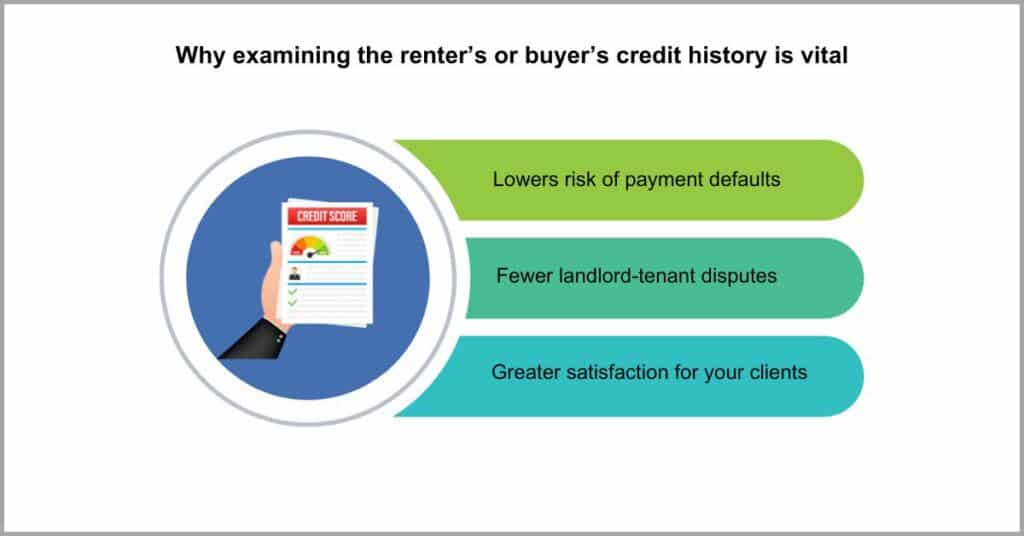
By scrutinizing credit reports of potential renters, you can get a better understanding of their financial stability and their likelihood to pay their rent on time. This is pivotal to finding reliable tenants for your client and improving satisfaction and repeat business.
In order to share and manage credit reports more conveniently, you should consider leveraging the best OpenKM DMS alternatives to improve real estate recordkeeping.
Fortunately, there are multiple sources you can use to obtain credit reports of renters.
These commonly include credit bureau companies such as Equifax, Transunion and Experian, among others, who can provide these reports upon request. It’s crucial to make these requests early because the turnaround time can be quite lengthy.
10. Listing agreement
A listing agreement is another crucial real estate record.
It’s basically a type of employment contract signed between you and the property seller, which authorizes you to act on their behalf and perform certain tasks.
What’s more, a listing agreement also specifies the duration of the agreement and the terms of commission to help you get remunerated appropriately.
A survey by Redfin established that 39% of home sellers believe that real estate agent commissions are too high. This is one of the reasons why some clients often rework the terms of the commission to offer compensation that they believe is fair.
Your listing agreement comes to the rescue to protect potential earnings.
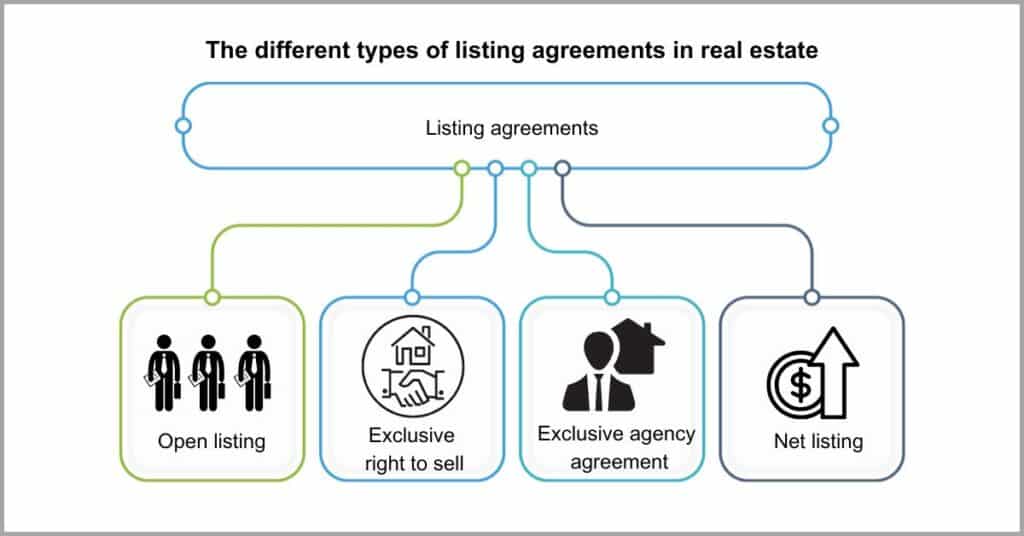
So how does a listing agreement work?
Once official, it grants you the power to perform tasks like listing the property on marketplaces, facilitating exhibitions and coordinating negotiations.
Listing agreements are crucial aspects of effective contract management, also because they provide legal protection by helping everyone understand their obligations.
Nonetheless, there are different types of listing agreements to consider. They include an open listening agreement, which ropes in multiple sellers, and exclusive agency and exclusive right to sell listing that provides selling rights to one party.
Another variety is a net listing agreement, whereby the owner sets a minimum amount they want while you earn a flat fee or percentage commission from the sale.
Conclusion
Real estate is a highly regulated industry.
Government policies and regulations remain strict and they’re always changing.
Without an effective document management workflow, your real estate agency faces an increased risk of infringing on state and federal legislations.
In fact, a survey by the NAR unearthed that 23% of real estate firms ranked volatile state and local regulations among the biggest threats to their business. They say that these regulatory frameworks have made it difficult to grow.
In order to avoid regulatory risks, you need to not only store important documents for real estate agents but also manage them effectively. This is where our proven document management software can help you agency out.
Click here to start your free FileCenter trial to improve regulatory compliance for your business.
Our platform offers strategic document management features like record retention and version control, among many others, which can help you reduce your compliance risks.


